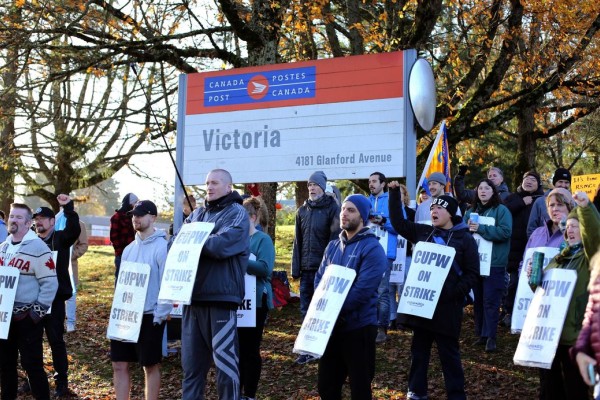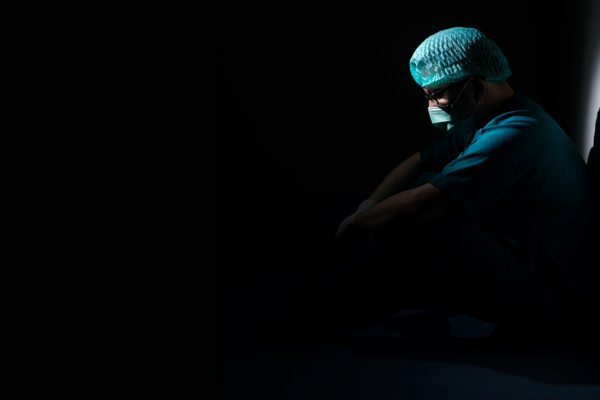-

How the Liberals are eroding workers’ Charter-protected rights
Prime Minister Mark Carney is presenting himself as a politician who has a vision of a new, more prosperous and sovereign Canada. Yet, whatever he and his government have in mind, writes Harry Glasbeek, they certainly do not want the working class to make too many gains or to have much of a say in what kind of a society we might become.
-

The ‘elbows up’ campaign for a Canada the left does not want
The dominant class and its cheerleaders, intent on doubling down to maintain a social system which proudly features gross inequality and inequity, are out on top. The working class and its leftist protagonists, hoping to fuel a movement for a radical rethinking of our polity to get closer to a social system which advances equality and altruism, find themselves at the bottom.
-

A lawyer’s perspective on the pro-Palestine encampments
Liberal law purports to give everyone the right to think what they like, say what they like. Capitalism makes sure that this admirable goal can never be fully attained. John Galsworthy, writing in the The Forsyte Saga, captured this very nicely: “If a man had money, he was free in law and fact, and if he had no money he was free in law and not in fact.”
-

Harry Glasbeek on how the law keeps workers’ aspirations firmly in check
Renowned legal scholar Harry Glasbeek unpacks how law has been used to ensure that workers’ aspirations are kept in check. In this excerpt from his new book, Law at Work, he uncovers how the legal system, through its structures and mechanisms, protects capitalists by legitimizing and reinforcing the exploitation of workers.
-

Ford, CUPE, class struggle and the Charter
Doug Ford’s use of notwithstanding thus becomes a declaration that he is engaged in class war. The legal niceties do not matter. He has unleashed a weapon of mass destruction. The right response is for CUPE, and all those who want to support them, to fight the fight in the same spirit. It is time to show the dominant class that without workers, they would not have anything.
-

Canada’s eviscerated democracy
Many people are ready for more democracy, for real democracy, not just for better electoral democratic practices. All political action, no matter how specific or local, should be coupled with demands for more direct decision-making power by the very people to be affected by a decision or practice. Economic democracy, democratization of public and private institutions, should be the focus of invigorated struggles.
-

As slogans die, dots are joined
So many inequities have been with us long before COVID-19. The pandemic made them more obvious to more people. This new awareness was awakened as the loud boosterism of the slogan “We are in this together” proved itself to be so hollow. Paradoxically, the overuse of the slogan intended to hide the true nature of our political economy from us may provide the kind of fuel that is needed to light a cleansing, a transforming, fire.
-

The pandemic and capitalism’s essential workers
The pandemic has political leaders and policy-makers floundering about. They declare some areas free from restrictions, while others are to abide by varying degrees of lockdowns. Then the virus does an about-turn, and so do the so-called leaders and policy wonks. New and different restriction rules are put into place. Throughout all this reactive helter-skelter, there is one constant. Essential workers are to continue working. There are many of them.
-
Remembering Leo Panitch—an iconic figure of the Canadian left
The numerous writings and comments spurred by Leo Panitch’s death have expressed shock, grief, gratitude and admiration for his contributions to scholarship and the pursuit of progressive political causes. This is more of a personal reminiscence of my encounters with Leo. I hope that it may go some way to explain why so many people cherished their relationship with him as much as I did.
-

Divided health and the crisis of capitalism
In a class-divided political economy, many risks are likely to impinge primarily (often only) on the working class; all too often on the poor, those with little power, and upon non-white, racialized, or Indigenous peoples. In those settings there is a much reduced impulse to avert the risks, especially if such attention demands restrictions on the ceaseless drive for the maximization of profits that is the life blood of capitalism. Class matters. It always did.




